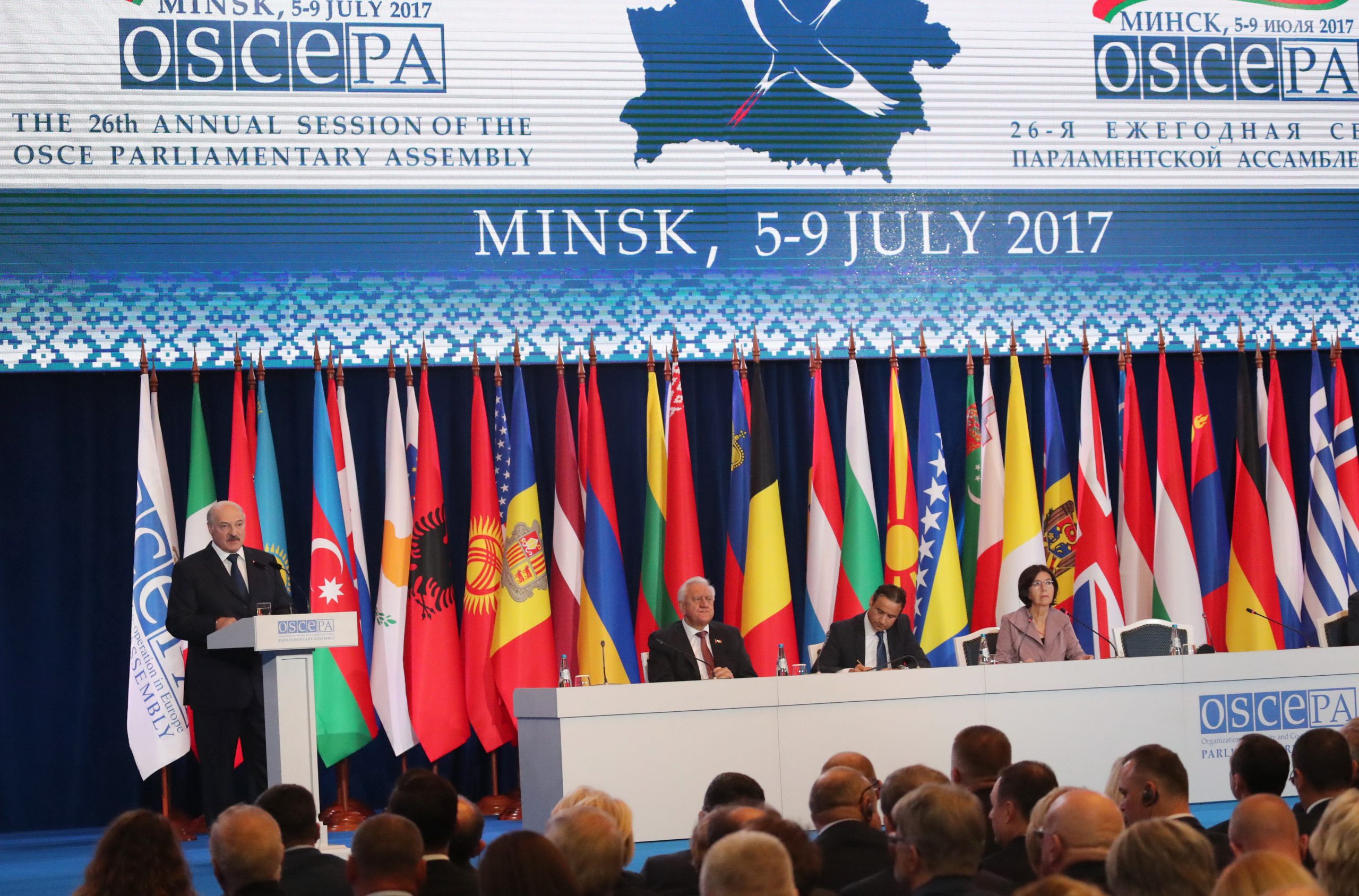Minsk’s interest in putting foothold on international arena could induce some liberalisation
 The situation has not changed
The situation has not changed

Civil society and the Belarusian opposition have benefited from the OSCE PA summer session in Minsk and under the pressure of the international community, launched negotiations with the Belarusian authorities on ongoing issues. The state has been forced to extend political freedoms during the OSCE PA session, significantly curtail repressions and demonstrate an attempt to launch an internal political dialogue with the assistance of the European parliamentarians. Amid attempts to updated their peacekeeping image on the international arena, the Belarusian authorities are likely to continue a strictly dosed liberalisation and step up contacts with the opposition.
The authorities, the opposition, Western ambassadors and the UN special rapporteur presented their claims to each other during the seminar on human rights in Belarus.
Despite the conventional rhetoric about the absence of human rights violations, the Belarusian authorities decided to hold a joint event with civil society and opposition on human rights issues. Participants in the seminar included human rights activists, Tell the Truth leaders, leaders of the centre-right coalition, and oppositional MP Anna Kanopatskaya. For many years, the Belarusian leadership was ignoring the political opposition and ruled out such a dialogue inside the country or, in rare cases, independently selected participants for discussions.
The presence of foreign delegations and Minsk’s attempts to shape a positive image for Western diplomats has limited the actions of security forces. Members of the Belarusian National Congress headed by Statkevich held several unauthorized protest actions in the centre of Minsk, apparently without any consequences for them. The authorities have repeatedly demonstrated their readiness to allow unauthorised opposition protests with political slogans. As a rule, such activities are punished with fines imposed on most active participants and organisers post factum.
Apparently, if the authorities engage in a dialogue with civil society and the opposition, those supporting street protests would decrease in number and consolidate in the BNC. Some opposition representatives, who participated in protests with social and economic demands in February-March 2017, would be ready to mitigate their positions should the authorities become more open to contacts. Nevertheless, street protests could enhance if inconsiderate actions of the authorities cause an increase in tension in society.
Overall, Minsk’s foreign policy initiatives to strengthen its foothold on the international arena have prompted the authorities to revise their domestic policy approaches. As never before, the Belarusian leadership is interested in boosting its international authority, which could lead to limited political liberalisation.
Subscribe to our newsletter




Situation in Belarus
Constitutional referendum: main consequences


 Video
Video
How to count the political prisoners: are the new criteria needed?


 Video
Video
Paternalism In Decline, Belarusian Euroscepticism, And The Influence Of Russia


 Video
Video












